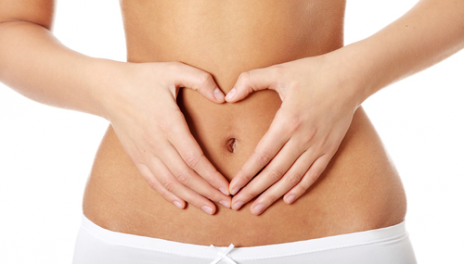
"What you eat affects everything from your blood to
your cells to your hormones," says Cynthia Stadd, a nutrition specialist
at the Berkley Centre for Reproductive Wellness and Women's Health in New York
City.
It is always advised to take 3 months to set your body ripe
for conception.
The study found that women who ate foods containing higher
amounts of trans fats, animal proteins and carbohydrates, among other dietary
factors, were more likely to have an ovulatory disorder.
- Cut caffeine, high caffeine intake interferes with conception. Same goes for teas and soft drinks that contain caffeine. Decaf should be fine.
- Complex carbohydrates such as brown rice, whole grains, beans and vegetables maintain the balance you need. Whole grains contain folic acid, which aids blood production and is important once you fall pregnant so the baby doesn't have neural tube defects.
- Proteins: Replace a portion of your animal protein sources (beef, chicken, pork) with plant sources (beans, nuts)
- Don't eat sushi or any raw fish. Avoid fish that have high mercury content due to their environment—including swordfish, tile-fish, king mackerel and shark. Salmon is high in omega-3 fats and is believed to reduce the chance of a miscarriage. Omega-3s are important for a baby's brain and eye development and have many other pregnancy-related benefits, including lowering your risk of preterm birth, reducing your chance of preeclampsia, and easing depression. It's important to get omega-3 fatty acids from food because your body doesn't make them.
- Increase green leafy vegetables. Your intake of broccoli and other dark green, leafy vegetables should be increased in any fertility campaign. They are high in phytosterols, which support our hormone system and are especially important for women wanting to conceive. It is important for preventing oestrogen overload in the body, a condition more common in women wanting to conceive once they are in their mid-30s or older.
- Supplement your multivitamins. Make sure it doesn't contain more than the recommended daily allowance (770 mcg 2,565 IU) of vitamin A, unless it's all in a form called beta-carotene. Getting too much of a certain kind of vitamin A can cause birth defects. Look for a multivitamin with at least 400 micrograms of folic acid. This B vitamin protects babies from neural tube birth defects, such as spina bifida. It's especially important to get enough folic acid before you get pregnant, because your baby's neural tube forms just three to four weeks after conception when many women don't even realize they're pregnant. Also, choose a multivitamin that also delivers a healthy dose of vitamin B12. Evidence hints that B12 deficiency may also play a role in some neural tube defects. Vitamin B12 is found primarily in animal-based foods.
- Drink lots of fluid. It helps the cervical fluid not to get this so as not to make it difficult for the sperm to swim up. The same goes for men that produce the semen.
- Reduce alcohol intake. The link between alcohol intake and fertility is not clear though some studies have linked it with difficulty in conceiving. But it is certain that it is unsafe for the baby when you drink while pregnant.
- Load up on the iron. As everyone know, we lose part of our iron store when we have our period every month. Too little iron at the start of pregnancy puts you at risk for postpartum anemia — a condition affecting new moms that causes your red blood cells to fall below normal and saps your energy level. When you get pregnant, your body would have difficulty maintaining its iron stores as your baby siphons the mineral from you. Red meat, sea food, liver (haem iron), spinach, beans, broccoli (non-haem iron) are good dietary sources of iron.
Fathers-to-be should take a daily multivitamin that contains
zinc and selenium for at least three months before conception. Studies suggest
these minerals aid in healthy sperm development. It takes this long for sperm
to fully develop and benefit from the supplementation.
"It's not clear how what we eat can determine how
easily we will get pregnant," says Melinda Johnson, MS, RD, spokesperson
for the American Dietetic Association and a dietitian with a private practice
in Chandler, AZ. Despite that, Johnson adds, "It makes sense to eat a
healthy diet while you are trying to get pregnant. It may increase your odds of
getting pregnant, but, beyond that, it nourishes your body so that it is at its
healthiest the moment that you do get pregnant."
No comments:
Post a Comment